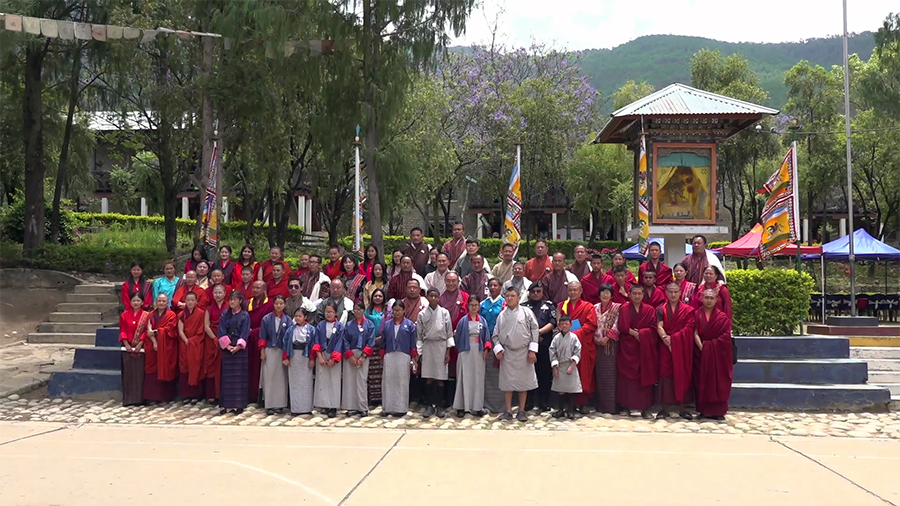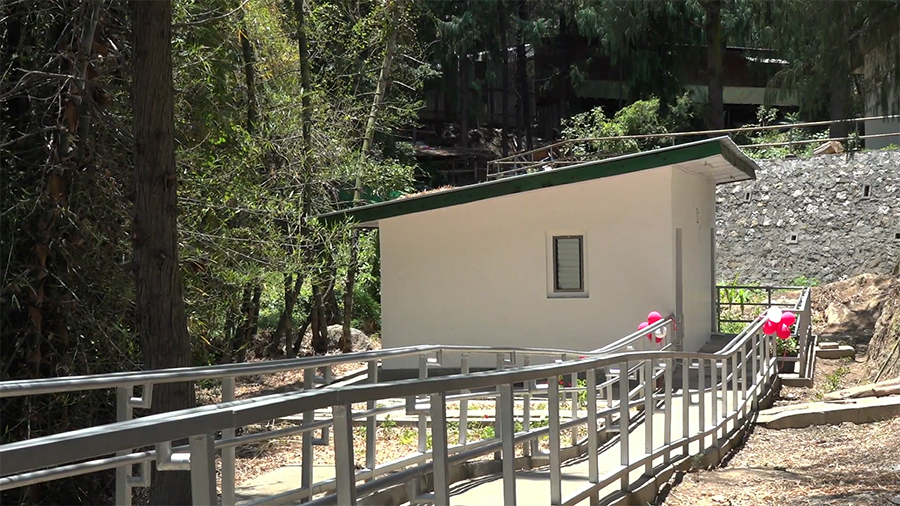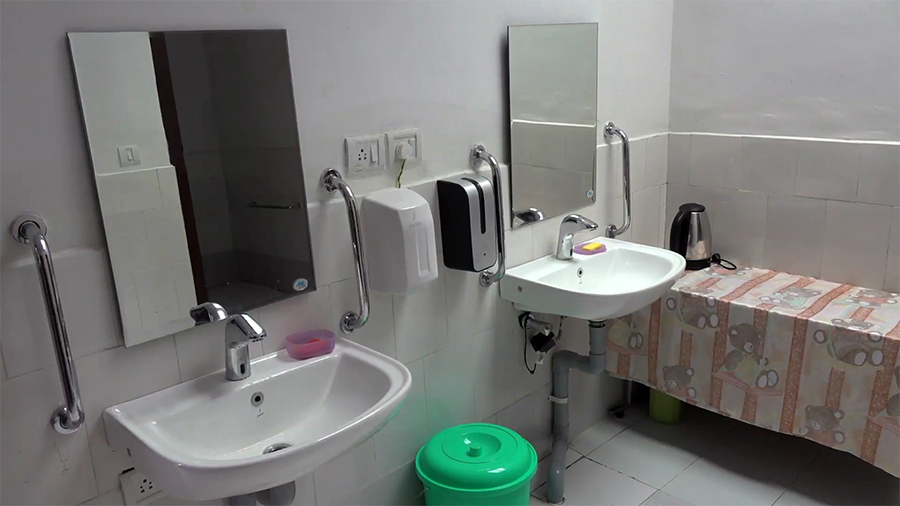
In a significant step towards promoting inclusivity and menstrual hygiene management, Red Dot Bhutan in collaboration with various partners celebrated the inauguration of eight inclusive Water, Sanitation and Hygiene (WASH) facilities in the country. At Khuruthang Middle Secondary School in Punakha, an inclusive toilet was unveiled marking this year’s Menstrual Hygiene Day.
 Khuruthang Middle Secondary School is among the eight Special Education Needs (SEN) schools across the country that has constructed toilets designed to cater to the specific needs of students with disabilities.
Khuruthang Middle Secondary School is among the eight Special Education Needs (SEN) schools across the country that has constructed toilets designed to cater to the specific needs of students with disabilities.
 The inclusive toilet has two separate washrooms for both boys and girls, equipped with essential amenities such as pad disposal bins, soap, sanitary pad boxes and a user-friendly footpath.
The inclusive toilet has two separate washrooms for both boys and girls, equipped with essential amenities such as pad disposal bins, soap, sanitary pad boxes and a user-friendly footpath.
Out of thirty-seven SEN schools in the country, seven SEN schools have been facilitated with inclusive toilets with funding from UNICEF. Each inclusive toilet costs around Nu 2.5 M.
During the event, Red Dot Bhutan also distributed menstrual hygiene kits to students with disabilities and labelled Khuruthang Middle Secondary School’s inclusive toilet as the first menstrual hygiene-friendly toilet in the country.
“We faced numerous challenges while using the general toilets. But now, we are overjoyed to have our own dedicated toilet. As students with disabilities, we can support each other without feeling ashamed,” said Sangchu Pem, a student.
“Some students ask us to stay away from them, complaining about unpleasant smells during menstruation. They say we smell bad and avoid coming near us. It would be better if we could help each other instead of being avoided,” said Namgay Lhamo, another student.
“Instead of discriminating against students with disabilities, especially during menstruation when they are already facing challenges, everyone must provide help and support,” said Sherab Choden, SEN teacher at the school.
Among the attendees was Sonam Zangmo, a caregiver to her younger sister with disabilities. She emphasised the importance of breaking the barriers and normalising menstruation as a part of everyday life.
“When menstruation happens unexpectedly, people discriminate and make fun of girls with disabilities for bloodstains on their clothes. Instead of helping, they criticise them. This leads girls with disabilities to avoid going to school during their periods,” said Sonam Zangmo, a caregiver.
“While there might have been some issues in the past regarding the discrimination of girls with disabilities during menstruation due to lack of awareness, we have not received any recent complaints. Thanks to advocacy programmes through various media platforms, people are now more informed and understanding,” said Karma Wangchuk, chief programme officer of the Ministry of Education and Skills Development.
According to the health ministry, access to water and toilet including sanitary products is a major concern for rural women and girls with disabilities.
Meanwhile, in a statement released to mark the day, the Patron of Red Dot Bhutan, Her Royal Highness Princess Eeuphlema Choden Wangchuck, said that while Bhutan has made commendable progress in enhancing sanitation In schools and monastic institutions, it is important to push further and make these facilities accessible to girls and women living with disabilities.
The Red Dot Bhutan campaign was initiated in 2014 to raise awareness of issues relating to menstrual hygiene and address challenges related to menstruation faced by girls and women in the country.
Changa Dorji, Punakha
Edited by Sonam Pem






